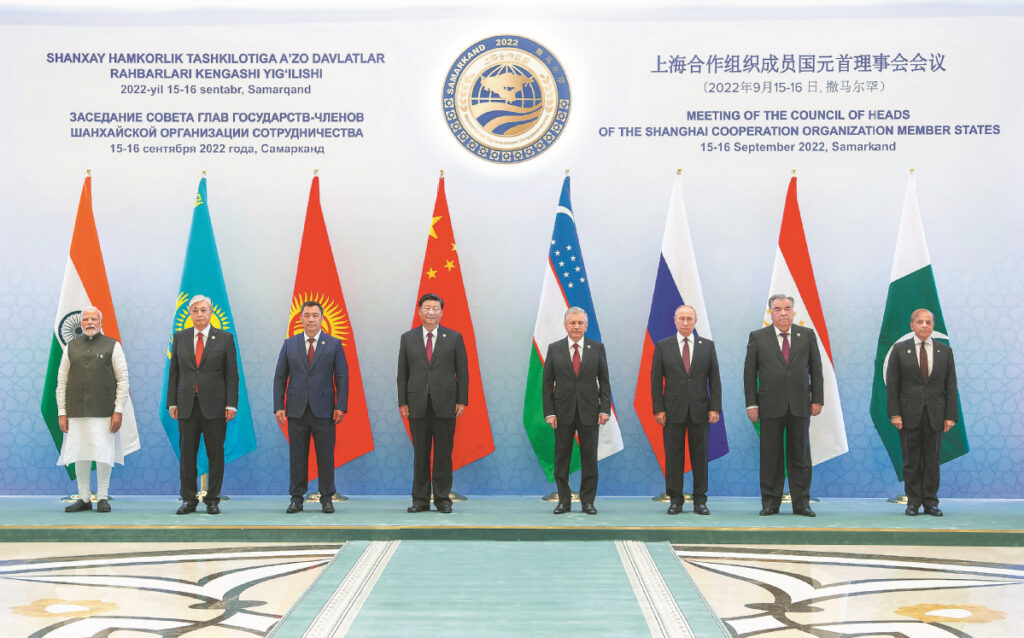(TibetanReview.net, Sep19’22) – Seeing the movement for democracy as a campaign of terrorism, Chinese President Xi Jinping has on Sep 16 warned his Central Asian neighbours and others not to allow outsiders to destabilise them with “colour revolutions” and offered to set up a regional counterterrorism training center to help them.
Colour revolutions refer to a series of uprisings that first began in former communist nations in Eastern Europe in the early 2000s, but are also used in reference to popular movements in the Middle East and Asia. Most have involved large-scale mobilisation on the streets, with demands for free elections or regime change, and calls for removal of authoritarian leaders, noted the indianexpress.com Sep 17.
Protesters often wear a specific colour, such as in Ukraine’s Orange Revolution, but the term has also been used to describe movements named after flowers like the Jasmine Revolution in Tunisia. In 2019, Beijing said the protests in Hong Kong (for greater democracy) had taken on “colour revolution characteristics,” the report noted.
Speaking in the city of Samarkand in Uzbekistan at the annual Shanghai Cooperation Organisation (SCO) summit — the regional security grouping that also includes Pakistan, Iran, and the Central Asian nations of Kazakhstan, Kyrgyzstan, Tajikistan, and Uzbekistan –Xi has said, “We should prevent external forces from instigating a colour revolution.”
Xi has offered to train 2,000 law enforcement personnel to set up a regional counterterrorism training centre and to “strengthen law enforcement capacity building”.

Xi’s comments at the SCO security summit with Russian President Vladimir Putin and leaders from Central Asia, India and Iran reflect official Chinese anxiety that Western support for pro-democracy and human rights activists is a plot to undermine his ruling Communist Party and other authoritarian governments, noted the AP Sep 16.
SCO was formed by Russia and China as a counterweight to US influence. It was created on Apr 26, 1996 with the signing of the Treaty on Deepening Military Trust in Border Regions in Shanghai by the heads of states of China, Kazakhstan, Kyrgyzstan, Russia and Tajikistan. It expanded later on with the admission of Uzbekistan, Pakistan, and India, while Iran and Turkey as set to join it in its latest expansion.
The one-day summit in the ancient city of Samarkand occurred against a backdrop of Russia’s invasion of Ukraine and China’s unprecedented military exercises around Taiwan and effective outlawing of free speech in Hong Kong under China’s draconian national security law.
Xi is promoting a “Global Security Initiative” announced in April following the formation of the Quad by the US, Japan, Australia and India in response to Beijing’s more assertive foreign policy.


